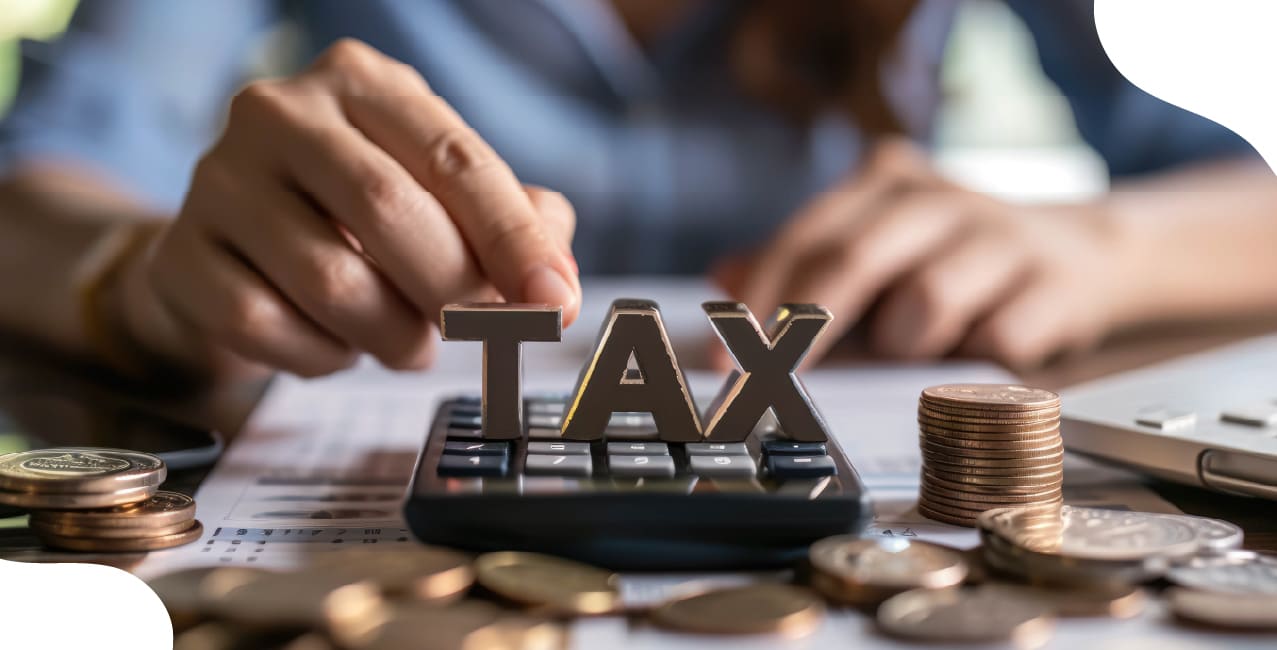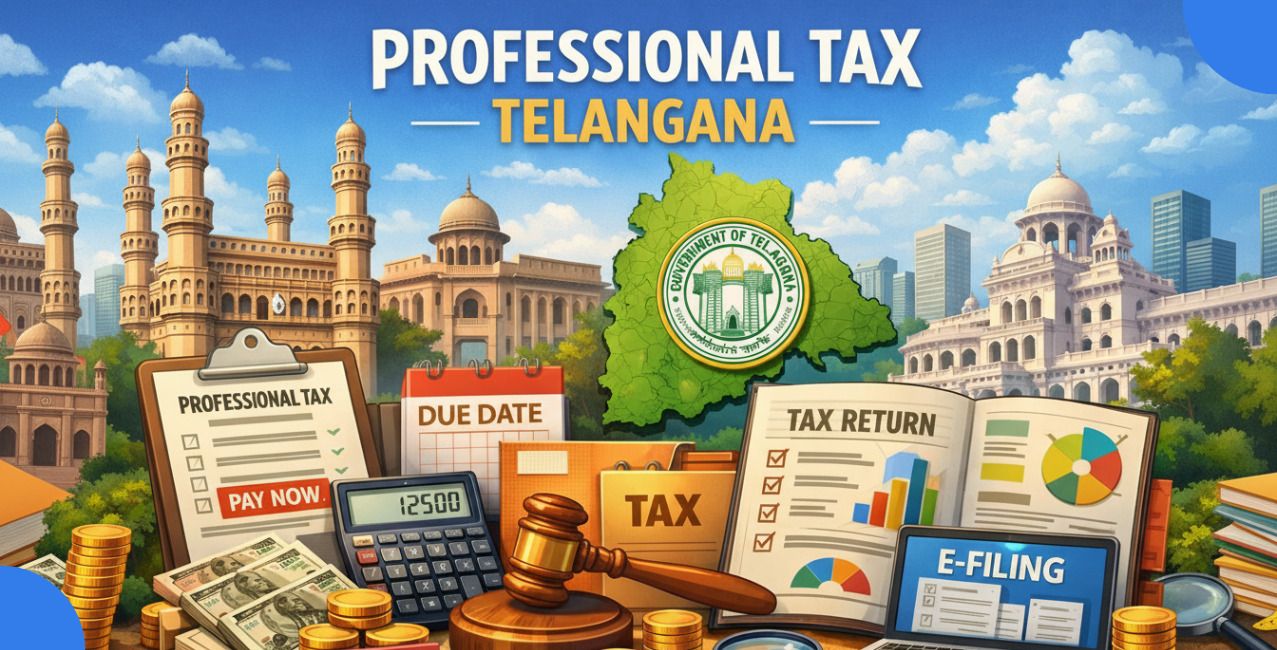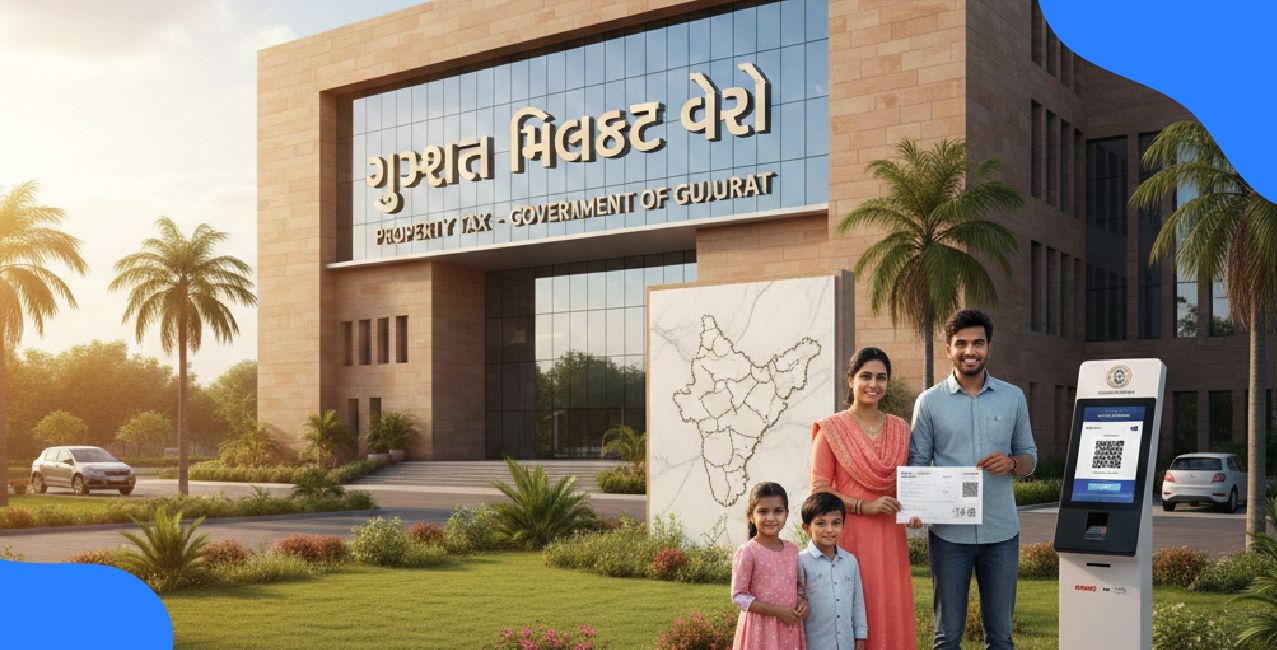Section 115BAA of Income Tax Act – Corporate Tax Rate & Benefits Explained

Check Your Loan Eligibility Now
By continuing, you agree to LoansJagat's Credit Report Terms of Use, Terms and Conditions, Privacy Policy, and authorize contact via Call, SMS, Email, or WhatsApp
Key Takeaways
- Section 115BAA is a provision of the Income Tax Act for domestic companies. This section aims to allow these companies to opt to pay tax at a concessional fixed rate of 22%.
- Along with the fixed rate of 22%, domestic companies are also liable to pay a surcharge at a flat 10% and a cess at 4%. This makes the effective tax liability under Section 115BAA roughly 25.17%.
- If your business opts for Section 115BAA, then you cannot withdraw it later. So, before opting for this section, you must read all the eligibility and deductions (like depreciation, Chapter VI-A deductions, etc.) related to this section.
Section 115BAA allows domestic companies to pay tax at a lower fixed rate (22%), excluding surcharge (10%) and cess (4%). The following table gives a summary of the effective tax liability under Section 115BAA:
This calculation shows that the effective tax rate under Section 115BAA is roughly 25.17%.
For instance, ABC Pvt. Ltd. earned ₹50,00,000 as profit in the FY 2024-25. If ABC Pvt Ltd opts for Section 115BAA, the tax will be:
This fixed rate makes it easy for companies to predict their tax liability. In this blog, we will learn more about Section 115BAA of the Income Tax Act, its features, eligibility, and due dates.
Read More - Section 115BAB of the Income Tax Act: Complete Guide & Benefits
Key Features Of Section 115BAA
Under Section 115BAA, companies enjoy certain benefits that help reduce tax complexities. The following table highlights the key features of the Section 115BAA:
The above-mentioned table reflects the conditions of Section 115BAA of the Income Tax Act. Your company can use this information to effectively plan their tax strategy.
Bonus Tip: Minimum Alternate Tax (MAT) is a minimum tax that companies must pay even if their taxable income is reduced by exemptions or deductions. If your business is opting for the Section 115BAA, then you are not liable to pay MAT. Also, they cannot use previously accumulated MAT credits.
Eligibility And Deductions Under Section 115BAA
Before moving ahead, it is necessary to understand which deductions are allowed and which are restricted under this section. The following table summarises the key deductions and their status for companies opting under Section 115BAA:
From the above-mentioned table, you can easily understand the deductions that are restricted under Section 115BAA. If you understand these limits, then your company can ensure compliance with the tax provisions.
Domestic Companies Income Tax Rates In India
Also Read - Section 115 BBE of Income Tax Act – Tax on Unexplained Income
Domestic companies in India are taxed at different rates. It depends on their turnover, sector, and the tax regime they choose. The following table highlights the different income tax rate options available for the companies:
The above-mentioned rates give companies the flexibility to select a suitable tax regime. Such concessional rules are aimed at encouraging manufacturing, reducing compliance load, and improving India’s business environment.
Conclusion
Domestic companies in India can choose a concessional tax framework under Section 115BAA. This provision lets them pay tax at a flat rate of 22%, excluding surcharge and cess. A 10% surcharge and 4% cess apply additionally.
Section 115BAA simplifies compliance and helps companies concentrate on growth instead of complicated tax planning. However, companies should carefully consider the limitations, such as restricted deductions and exemptions, before opting for this regime.
FAQs
1. Who is eligible for section 115BAC?
An individual or a Hindu Undivided Family (HUF), who has income other than business or professional income, can opt for Section 115BAC.
2. Does opting for Section 115BAA affect dividend distribution tax (DDT)?
No, dividend distribution tax (DDT) rules remain unaffected by Section 115BAA.
3. Do companies need board approval before opting for Section 115BAA?
Legally, no. But many companies get board approval to maintain governance and record-keeping.
4. Is HRA allowed under 115BAC?
No, you cannot claim HRA exemption if taxed as per Section 115BAC.
5. Does opting for Section 115BAA impact tax audits?
No, the usual audit requirements under the Act continue unchanged.
6. How to calculate MAT credit?
MAT is calculated at 15% of book profit (plus cess and surcharge). The company compares this with tax under normal provisions, and the higher amount becomes the actual tax payable.
7. Does Section 115BAA apply to companies under liquidation?
No, it applies only to going-concern domestic companies that file a regular return of income.
Other Related Pages | |||
About the author

LoansJagat Team
Contributor‘Simplify Finance for Everyone.’ This is the common goal of our team, as we try to explain any topic with relatable examples. From personal to business finance, managing EMIs to becoming debt-free, we do extensive research on each and every parameter, so you don’t have to. Scroll up and have a look at what 15+ years of experience in the BFSI sector looks like.
Subscribe Now
Related Blog Post

Professional Tax of Telangana: Guide to Rates, Rules & Payment Process

Property Tax Bihar: Rates, Online Payment Process & Complete Guide

Property Tax Gujarat – Rates, Calculation, Payment Process & Complete Guide
Recent Blogs
All Topics
Contents
Quick Apply Loan
Consolidate your debts into one easy EMI.
Takes less than 2 minutes. No paperwork.
10 Lakhs+
Trusted Customers
2000 Cr+
Loans Disbursed
4.7/5
Google Reviews
20+
Banks & NBFCs Offers
Other services mentioned in this article





